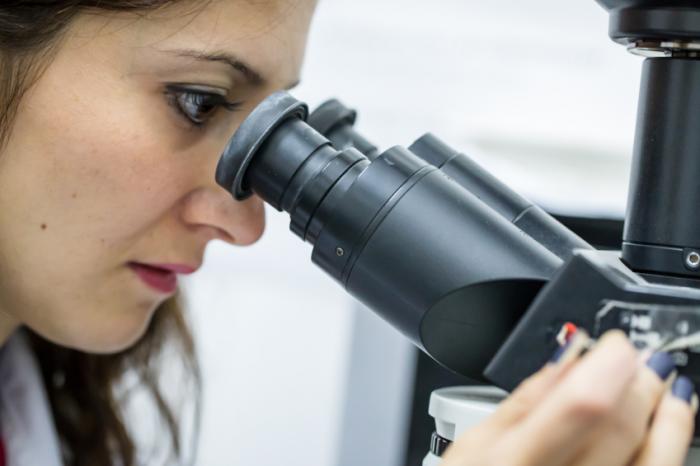Pancreatitis Diet
Nutrition is a vitally important part of treatment for patients with pancreatitis. The primary goals of nutritional management for chronic pancreatitis are:
- Prevent malnutrition and nutritional deficiencies
- Maintain normal blood sugar levels (avoid both hypoglycemia and hyperglycemia)
- Prevent or optimally manage diabetes, kidney problems, and other conditions associated with chronic pancreatitis
- Avoid causing an acute episode of pancreatitis
To best achieve those goals, it is important for pancreatitis patients to eat high protein, nutrient-dense diets that include fruits, vegetables, whole grains, low fat dairy, and other lean protein sources. Abstinence from alcohol and greasy or fried foods is important in helping to prevent malnutrition and pain.
Nutritional assessments and dietary modifications are made on an individual basis because each patient’s condition is unique and requires an individualized plan.
Vitamins & Minerals
Patients with chronic pancreatitis are at high risk for malnutrition due to malabsorption and depletion of nutrients as well as due to increased metabolic activity. Malnutrition can be further affected by ongoing alcohol abuse and pain after eating. Vitamin deficiency from malabsorption can cause osteoporosis, digestive problems, abdominal pain, and other symptoms.
Donc, patients with chronic pancreatitis must be tested regularly for nutritional deficiencies. Vitamin therapies should be based on these annual blood tests. En général, multivitamins, calcium, iron, folate, vitamin E, vitamin A, vitamin D, and vitamin B12 may be supplemented, depending on the results of blood work.
If you have malnutrition, you may benefit from working with our Dietitian who can guide you towards a personalized diet plan.
Risk of diabetes in chronic pancreatitis
Chronic pancreatitis also causes the pancreas to gradually lose its ability to function properly, and endocrine function will eventually be lost. This puts patients at risk for type 1 diabète. Patients should therefore avoid refined sugars and simple carbohydrates.
Enzyme Supplementation
If pancreatic enzymes are prescribed, it is important to take them regularly in order to prevent flare-ups.
The healthy pancreas is stimulated to release pancreatic enzymes when undigested food reaches the small intestine. These enzymes join with bile and begin breaking down food in the small intestine.
Since your pancreas is not working optimally, you may not be getting the pancreatic enzymes you need to digest your food properly. Taking enzymes can help to digest your food, thus improving any signs or symptoms of steatorrhea (excess fat in the stool, or fat malabsorption). In turn this will improve your ability to eat better, lowering your risk for malnutrition.
Alcohol
If pancreatitis was caused by alcohol use, you should abstain from alcohol. If other causes of acute pancreatitis have been addressed and resolved (such as via gallbladder removal) and the pancreas returned to normal, you should be able to lead a normal life, but alcohol should still be taken only in moderation (maximum of 1 serving/day). In chronic pancreatitis, there is ongoing inflammation and malabsorption — patients gradually lose digestive function and eventually lose insulin function — so regular use of alcohol is unwise.
Smoking
People with pancreatitis should avoid smoking, as it increases the risk for pancreatic cancer.
Why is it that sometimes I can eat certain foods and other times those same foods cause problems?
Many people experience this phenomenon, although it is not well understood and there is no clear answer. It is important to remember to regularly take pancreatic enzymatic supplements to be sure a lack of enzymes is not the cause.
Are there other vitamins or supplements I can take?
Patients with chronic pancreatitis are at risk for chronic malabsorption, so they must be tested regularly for nutritional deficiencies. Vitamin therapies should be based on these annual blood tests. En général, multivitamins, calcium, iron, folate, vitamin E, vitamin A, vitamin D, and vitamin B12 may be supplemented, depending on the results of blood work.
BEST TREATMENT OPTION FOR PANCREATITIS – THÉRAPIE PAR CELLULES SOUCHES
Détails – https://nbscience.com/nbs-stem-cells-clinic/
Mésenchymateux thérapie par cellules souches for acute and chronic pancréatite.
Mésenchymateux cellules souches (MSC) have attracted attention as a cell source for regenerative medicine. In particular, MSCs have an anti-inflammatory effect by secreting several kinds of bioactive molecules.
Intravenous injection of stem cells ameliorated CP progression, likely by directly differentiating into acinar-like cells and by suppressing inflammation, fibrosis, and pancreatic tissue damage.
Besoin de plus de détails?
Contacter le Dr. Eugène Zadorine
e-mail: evgeniyzadorin@gmail.com


